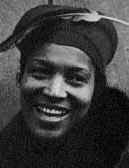 Zora Neale Hurston, 1891 – 1960, started to publish right after the height of the Harlem Renaissance. The ability to support oneself with art that explored the African-American experience waned with the onset of the depression and she fell into obscurity until re discovered by Alice Walker (“The Color Purple”).
Zora Neale Hurston, 1891 – 1960, started to publish right after the height of the Harlem Renaissance. The ability to support oneself with art that explored the African-American experience waned with the onset of the depression and she fell into obscurity until re discovered by Alice Walker (“The Color Purple”).
Her work gained attention with the introduction of college Black literature classes during the 70”s. She was found and embraced by a whole new generation (including me). Her novels, short stories and poetry are now also taught in women’s studies and general literature courses.
She studied cultural anthropology at Barnard College and Columbia University. As a “folklorist”, she wrote and sang in the rural style and dialect of the people she remembered from the all black town of Eaton, FL where she was born and of the folks she met while traveling across the south.
Perhaps her most famous book, “Their Eyes Were Watching God”, 1937, is about “Janie”, who managed to make her way thru life and find love during a time and in a place very difficult for a woman’s survival. (The was made into a TV movie a few years ago with Halle Berry)
Zora Neale Hurston – Great story teller!
Bibliography (from Wikipedia)
- Color Struck (1925) in Opportunity Magazine
- Sweat (1926)
- How It Feels to Be Colored Me (1928)
- The Gilded Six-Bits (1933)
- Jonah’s Gourd Vine (1934)
- Mules and Men (1935)
- Tell My Horse (1937)
- Their Eyes Were Watching God (1937)
- Moses, Man of the Mountain (1939)
- Dust Tracks on a Road (1942)
- Seraph on the Suwanee (1948)
- I Love Myself When I Am Laughing…and Then Again When I Am Looking Mean and Impressive: A Zora Neale Hurston Reader (edited by Alice Walker; introduction by Mary Helen Washington) (1979)
- Sanctified Church (1981)
- Spunk: Selected Stories (1985)
- Mule Bone: A Comedy of Negro Life (play, with Langston Hughes; edited with introductions by George Houston Bass and Henry Louis Gates, Jr., and the complete story of the Mule bone controversy.) (1991)
- The Complete Stories (introduction by Henry Louis Gates, Jr (1995)
[ad#reviewpost]

